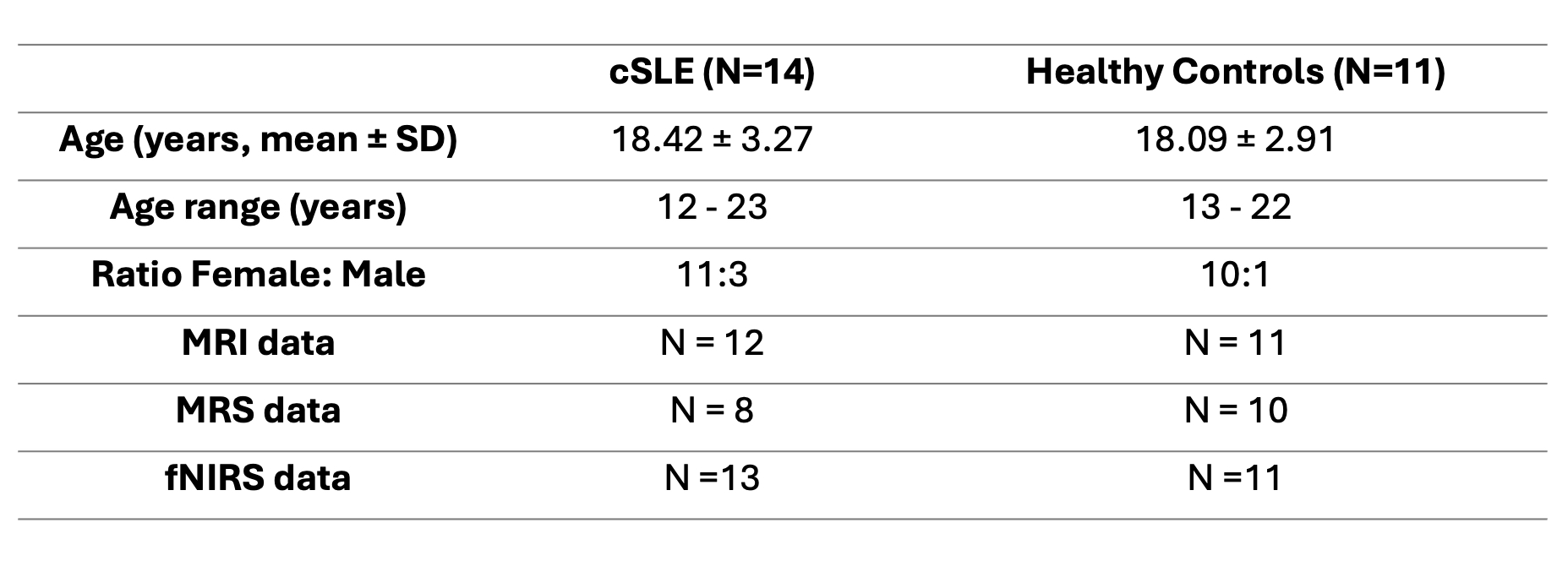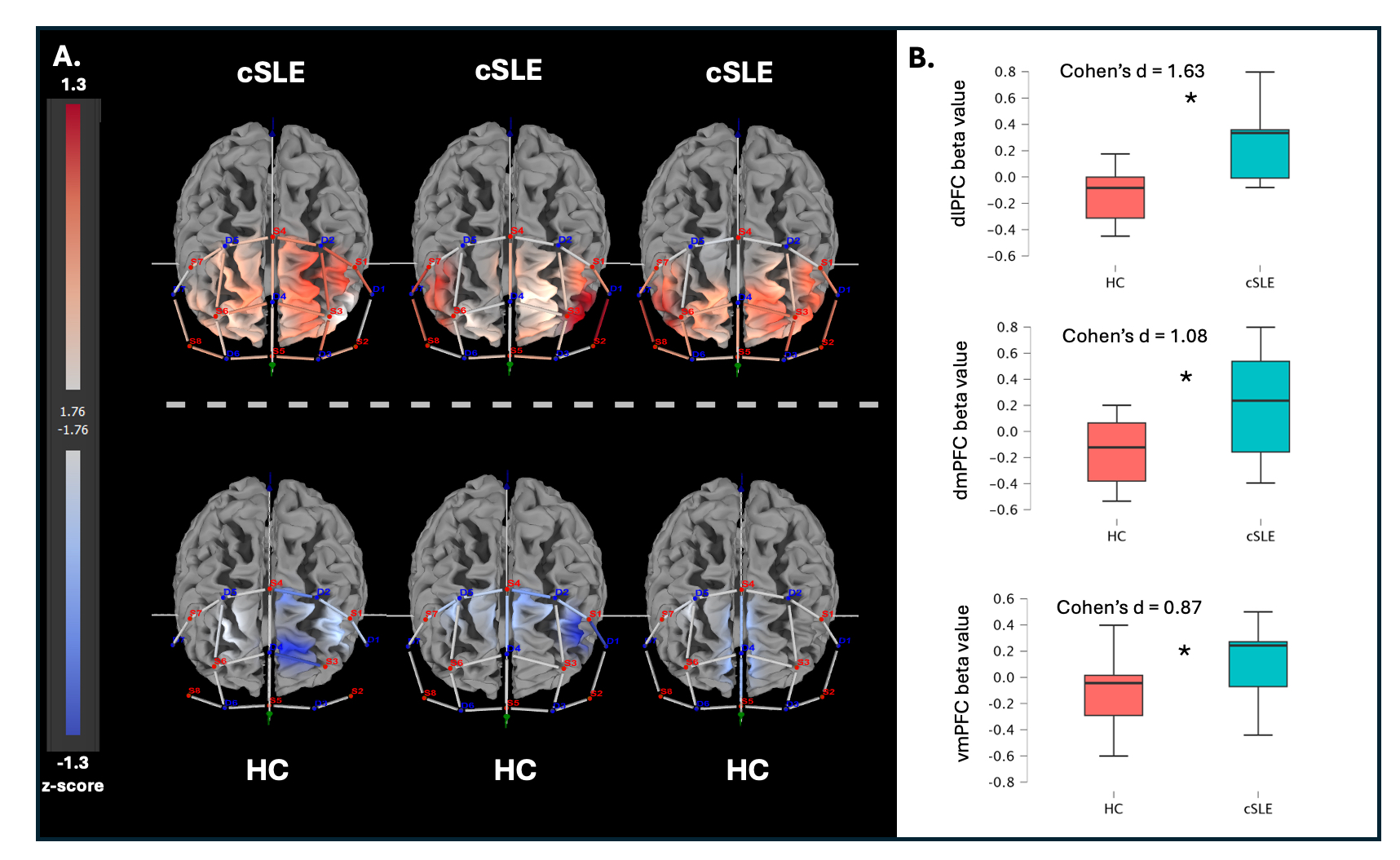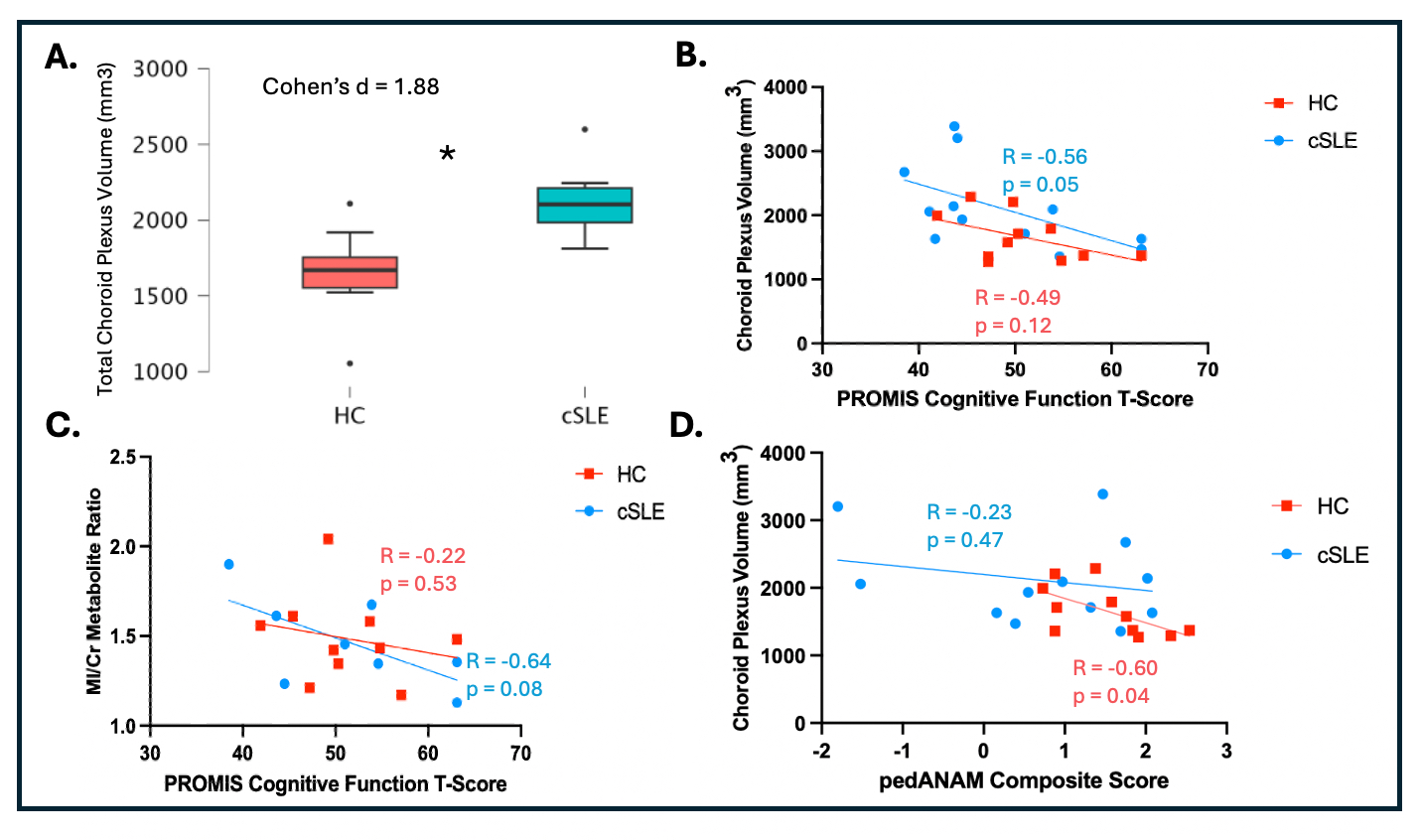Session Information
Session Type: Poster Session C
Session Time: 10:30AM-12:30PM
Background/Purpose: Cognitive dysfunction (CD) in childhood-onset SLE (cSLE) is undertreated yet profoundly impacts lifelong health-related quality of life. Investigating CD in cSLE is crucial, given the vulnerability of neurodevelopmentally immature systems. This preliminary study cross-sectionally characterized neurocognitive functioning and structural and functional neuroimaging and investigates how neuroinflammatory processes, reflected by choroid plexus (CP) and brain metabolites, contribute to CD in cSLE.
Methods: Patients aged 12-23 years old, meeting 1997 ACR or 2019 ACR-EULAR classification criteria for SLE, with onset prior to 18 years of age were recruited from a single pediatric rheumatology clinic. We also recruited age and sex-matched controls without cSLE or other chronic conditions. Functional near-infrared spectroscopy (fNIRS) examined prefrontal cortex functionality, structural MRI measured CP volume, and inflammatory metabolites were quantified using magnetic resonance spectroscopy (MRS). Neurocognitive function was evaluated with the self-report Patient-Reported Outcomes Measurement Information System (PROMIS) Cognitive Function short form and performance-based testing on the computerized Pediatric Automated Neuropsychological Assessment Metrics (PedANAM) battery. Statistical analyses included two-tailed t-test and Pearson’s correlations.
Results: Fourteen patients with cSLE and 11 healthy controls were recruited (Table 1). Compared to controls, patients with cSLE demonstrated impaired performance on the PedANAM Stroop task (p< 0.01, t=3.29), altered task-based prefrontal cortex functionality on fNIRS compared to healthy controls (Fig. 1), and larger CP volumes (p< 0.01, t=3.06) controls (Fig. 2). Lower scores on the PROMIS cognitive functioning scale corresponded with larger CP volumes and with lower Myo-Inositol/ Creatine (MI/Cr) metabolite ratios and lower PedANAM scores with higher CP volumes were observed.
Conclusion: These preliminary findings suggest that CD in cSLE is characterized by a combination of prefrontal cortex functional alterations alongside morphological changes in the choroid plexus that may be indicative of brain-cerebrospinal fluid barrier dysfunction. Understanding these mechanisms is crucial for developing targeted interventions to improve outcomes for children with SLE.
To cite this abstract in AMA style:
van der Heijden H, Knight A, Ronen I, Alonzi G, McBrearty K, Deokar A, Gonzalez-Heydrich J, Chang J, Upadhyay J. Biobehavioral Basis and Outcomes of Cognitive Dysfunction in Childhood Systemic Lupus Erythematosus [abstract]. Arthritis Rheumatol. 2024; 76 (suppl 9). https://acrabstracts.org/abstract/biobehavioral-basis-and-outcomes-of-cognitive-dysfunction-in-childhood-systemic-lupus-erythematosus/. Accessed .« Back to ACR Convergence 2024
ACR Meeting Abstracts - https://acrabstracts.org/abstract/biobehavioral-basis-and-outcomes-of-cognitive-dysfunction-in-childhood-systemic-lupus-erythematosus/



